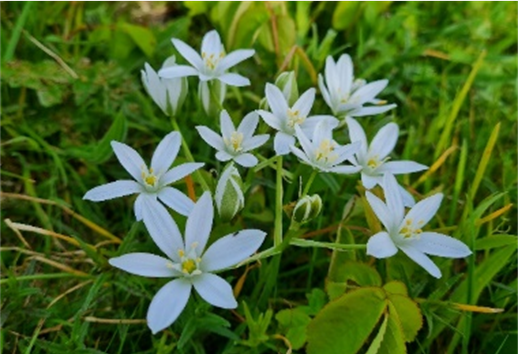Maintaining closed churchyards to meet local aspirations and make space for nature
- Zoe Hilditch, Cormac
- Jan 8, 2024
- 2 min read
In November 2021, recognising that species were being lost at an alarming rate across Cornwall, Cornwall Council declared a Cornwall Ecological Emergency. In response and in order to best manage land and sea for nature, Cormac has adapted its methods of maintenance, and this has been clearly demonstrated through our work with local church communities and supported by Cornwall Council.
The creation of site-specific management plans for closed churchyards across Cornwall was driven directly by the needs of local communities.
Photo By David Brown
The roles of communities in enhancing biodiversity
The alteration to maintenance regimes within closed churchyards was driven by church communities’ dissatisfaction with local government funding influenced changes to maintenance prescriptions. With output deemed to be unsatisfactory, the church groups supplemented with their own local arrangements however ultimately several complaints resulted in the Ludgvan Church vicar contacting Cormac’s Environment team about working together for the good of the churchyard.
Volunteer days opened up lines of communication with Cormac’s local team listening and gathering ideas and aspirations expressed locally about how the local community wanted to see their churchyard managed. With clear objectives established, these were presented to Cornwall Council’s Client Team who were impressed and approved an initial pilot at Ludgvan Church to test and monitor the value of the approach.
The biodiversity measures taken
Individual managements plans were produced for each churchyard with fundamental input from the church communities to account for the different infrastructure and layouts. The plans are sensitive to the different needs of the church including key areas used for weddings photographs.
Responding to the varying uses, measures taken included:
Older sections of the churchyards are designated as wildlife areas and are cut and collected twice a year.
Living churchyard areas are cut and collected up to twice a year.
Invasive plants are removed or controlled with a programme of approved treatment using integrated weed management protocols.
Grass pathways are mown into wildlife access and are well maintained for access to bring people close to nature.
Where space and access allow, grillo ‘cut and collect’ machines are utilised to ensure grass is removed during cutting of wildflowers and grasses are establishing. This helps remove nutrients from the soil and enables wildflowers to flourish.
The legacy
A local volunteer ecologist has documented the abundance of wildflowers that have established at two of the churchyards because of the co-operation and methods of work adopted by Cormac and the volunteer group.
As part of the annual planning process, the success of the management saw Cornwall Council extend the pilot at Ludgvan Church to include 15 other closed churchyards across Cornwall. The long-term legacy is that any additional churchyards that transfer to Cormac management in the future will be subject to the same site-specific management. Additionally, communities are invited to contact Cormac if they have green spaces that they want to work with us on to implement better management for nature.
Recognition at the BIG Biodiversity Challenge Awards
Following successful entries in previous years, we are delighted to have been recognised in the Community Engagement and Biodiversity Legacy categories with a maintenance regime that has seen us adapt existing programmes, resources and behaviours to make space for nature. It is a demonstration that by working with communities and changing our approach to maintenance, that we can create havens for wildlife than can be enjoyed by visitors and the local community.
Photos By David Brown








